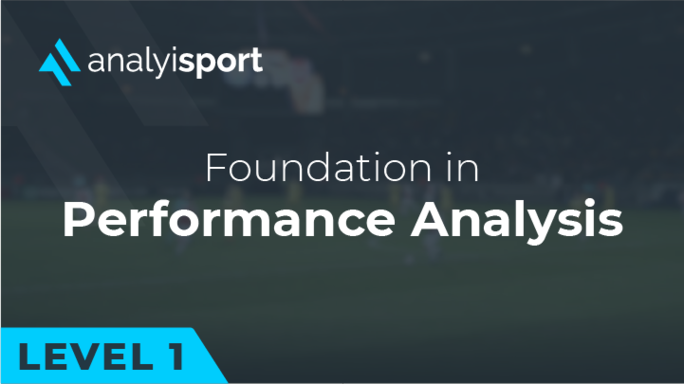What is Confédération Africaine de Football (CAF)?
What is Confédération Africaine de Football (CAF)?
Up to now, no African country has ever won the World Cup but African nations have long been, and continue to be, a presence in World Cup competitions.
The Confederation of African Football (CAF), or Confédération Africaine de Football, is one of the six International Federation of Association Football (FIFA) confederations. It is the largest of all the confederations with 54 members. CAF is the administrative and organising body for association football on the continent of Africa.
The notion of forming an African confederation was born in Europe during the 1954 FIFA Conference, in Berne, Switzerland. Becoming a FIFA confederation was not a straightforward process, a number of countries claimed that the standard of football in the African nations did not warrant an allocation of seats. Heated debates and a subsequent vote unveiled 24 votes for, and 17 against the formation of an African confederation. Success in the vote allowed the continent to appoint their first ever FIFA representative to the Executive Committee.
Two years later at a subsequent FIFA Congress in Portugal, the four African nations present (Egypt, Sudan, Ethiopia and South Africa), initiated discussions on their acceptance as a confederation. In 1957, this dream was realised and CAF was formalised, as was the idea of the Africa Cup of Nations.
Being the largest of all confederations guarantees the deliverance of many quality players. And, whilst European players are often perceived as dominating football, a plethora of iconic African players have set the footballing world alight over the years.
CAF’s Mission and Structure
Mission
CAF, the organising body of association football in Africa takes overall responsibility for the promotion and development of football within the continent. Their mission statement aims to:
- Promote the development of the game and increase its popularity in Africa and globally
- promote the development of women’s football
- organise its own continental competitions and partake in intercontinental competitions assigned by FIFA
- to manage all forms of football, draw up and adopt provisions that govern its activities and maintain productive relationships with FIFA and other international sports organisations
- protect the integrity of players and promote football that is free from discrimination
- promote friendly relationships between National Associations and ensure that African football is free from political influence.
Structure
CAF is organised into a series of bodies that oversee the fair governance of association football in each of the 54 member countries.
General Assembly Meetings take place annually, where a set agenda is discussed and voted upon.
CAF’s Commitment to African Nations
Football, often described as the game of billions, is actively followed by more than 1 billion supporters on the African continent alone. 93% of the 1.4 billion population class themselves as spectators.
With such a large and diverse membership, a key feature of CAF’s current commitment to football is to promote unity and collaboration amongst the nations. In late 2023, CAF launched a new incentive aimed at celebrating the success of the previous Africa Cup of Nations/Cote d’Ivoire, also known as AFCON.
The TotalEnergies CAF Africa Cup of Nations Cote d’Ivoire 2023, OurAFCON (African Cup of Nations) has been part of a broader strategy to develop CAF’s mission to promote cultural richness and unity within the continent – and a shared love of the beautiful game.
Our AFCON and #PrideofAfricanfootball allows Africans around the world to indulge a passion for Africa and its footballing pride and heritage.
To encourage African audiences to unite, CAF’s, Our AFCON campaign, aims to engage with supporters on and off the field, through the arts, music and other vibrant forms of celebration.
Flagship Tournaments and Competitions
Perhaps CAF’s most successful and prestigious tournament is the Africa Cup of Nations (AFCON). A biennial competition that continues to grow in popularity on the global stage due to the number of African nationals playing in leagues around the world.
At its inaugural debut, only three teams were represented: Egypt, Sudan and Ethiopia. Due to continued expansion there is now a need for a qualifying tournament after which 24 teams are allocated places in six groups. Two rounds are played, the first leading to the second stage, the knockout rounds.
In 2019, more than 800 million people cheered on their national team during the TOTAL AFCON cup. According to CAF, more than 500 million people from 160 countries tuned into the 2022 AFCON cup demonstrating just how significant this cup is globally.
Egypt is the most successful nation, with seven wins. This is followed by Cameroon with five wins. The reigning champions, due to be contested in 2024, are Senegal.
Until 2021 this tournament was held during the summer months of the southern hemisphere, meaning the heat and humidity was stifling. In order to address this, the timings were changed so that the continent was experiencing its winter months. This caused major scheduling clashes with European teams who were losing players in January and February of their seasons.
93% of the 1.4 billion African nationals are football fans so AFCON is regarded as an opportunity to enjoy competition between the nations, develop friendly relationships between countries and celebrate known and well-established rivalries. For many African nationals who play professionally in other continents, AFCON allows them to showcase their talent to home-crowds.
As with all competitions, great moments of footballing history are made. Perhaps none more so than in 2019, when under-dogs, Madagascar made it to the quarter finals. Keeping a clean sheet in the group stages and eliminating Nigeria in the process, they were the shock of the tournament. Getting knocked out in the quarter finals by Tunisia did diminish their excellence.
Challenges and Innovations
Recently, CAF have been working alongside FIFA in an attempt to ‘project African football to the top of the world.’ Representatives from media industries, the international banking community, investment industries and former players are in pursuit of realising this dream.
The intention of these bodies is to harness the unbridled passion for football that is felt in the heart of African nations and combine this with three identified key pillars to raise the profile of the game on the global stage. Competition element, refereeing and investment opportunities are the three driving forces that will enable CAF, FIFA and the continent to drive football even further forward.
Sustainable infrastructure projects, more frequent youth competitions and the development of the women’s league are all on the agenda. As is the introduction of new pan-African competitions and the repositioning of current competitions.
A newly established league for women was established in 2019. The South African Football Association (SAFA) replaces predecessor leagues that were first started in 1976.
CAF is a dynamic body in the footballing world and is determined to raise the profile of African football, whenever and wherever it can. Strategies to develop strong, positive relationships amongst its 54 members are ongoing and proving to be successful. Its passion for growing the game further is arduously shared with its population and FIFA.
With a commitment to developing infrastructure, increasing tournaments and realising the potential of the women and youth game, CAF has a lot on its plate. Watching how it continues to grow the beautiful game is going to be a spectacle to behold and admire.
Related Courses:

AnalyiSport Gift Voucher
£25.00
Share this article
Our Learning Pathways
AnalyiSport is for everyone who is passionate about analysis in football. Where are you in your development journey?
Become a Football Scout
As more clubs than ever look to build data into their recruitment process, an understanding of recruitment analysis is your ticket to success in the game.
Related Articles
Our team provides news and insights from the cutting edge of football analysis.






